- 出版社: 中国对外翻译出版社; 第1版 (2012年9月1日)
- 平装: 282页
- 语种: 简体中文, 英语
- 开本: 16
- ISBN: 7500129149, 9787500129141
- 条形码: 9787500129141
- 商品尺寸: 25.6 x 18.4 x 0.6 cm
- 商品重量: 522 g
- 品牌: 北京新航道
Details
基本信息
编辑推荐
《新航道:9分达人雅思口语真题还原及解析》优势及卖点:2012年-2011年雅思口语高频考题;深度剖析高频考题,以不变应万变;系统总结应试方法,以少胜多、以一敌百;全面解读考官心理,解决非技术性难题。
作者简介
于磊,先后就读于澳大利亚悉尼科技大学,悉尼大学和中央昆士兰大学,取得了金融和会计硕士研究生学位,沉浸澳洲多年,遍览澳洲文化,攫取澳洲教育精髓,回国后供职于新航道国际教育集团,主讲雅思口语,词汇和听力课程。
目录
第一章 如何在考官的心目中建立起积极的形象
请考生试想以下10种情况
英语口语的学习分为三个步骤
第二章 所有你需要积累的
句首给力副词
基本句型
句子逻辑关系(例句全部来自Part Two)
雅思口语最高频替换句型
雅思口语中的多样句型
雅思口语最好用的小词和词组
流行语Catchphrases
以y结尾的实用小词
英文经典背诵
第三章 Part One考官想听什么
关于雅思口语,你必须知道的事儿
评分标准解读
考官希望从你身上看到的
雅思口语怎么考
Part One全扫描
Part One最高频问题(考官必问)
Part One终极分类
Part One考场还原演练
旅游类Travel
公共交通类Transportation
驾驶和驾照类Driving
假期类Holiday/Weekend
Part One核心观点大总结
效率Efficiency
环境Environment
新科技Technology
个人的(physical fitness/mental wellness/personal attachment/interpersonal communication)
Part One最常考题库
Accommodation
Bird
Car and Driving
Childhood Activities
Colour
Computer
Collection
Dance
Email
Flower
Food
Handicraft
Holiday
Hometown
Indoor Activities
Mobile Phone
Movie
Music
Name
Noise
Shopping
Sports
Study and Work
Travelling
TV Program
Weather
Weekend/Outdoor Activities
第四章 Part Two分秒必争
卡片题大解析
第一步
第二步
第三步
第五章 Part Three哲学思想的辨证与统一
Part Three问题归类
两个选一个
重要类
流行类
区别类
好坏处类
改变类
观点类
Part Three蕴含的社会动态 Societal Trends
第六章 雅思口语题库总结
第一节 Work and Study
Part Two
Part Three
第二节 Media and Culture
Part Two
Part Three
第三节 People and Wildlife
Part Two
Part Three
核心词汇
第四节 Travel and Transportation
Part Two
Part Three
第五节 Shopping and Lifestyle
Part Two
Part Three
核心词汇
第六节 Fitness and Environment
Part Two
Part Three
第七节 Housing and Places
Part Two
Part Three
第八节 Memories and Experiences
Part Two
Part Three
第七章 高分词汇替换表
词汇替换表
核心话题词汇
表示各种各样的“好”Good/Beautiful/Nice/Great
第八章 剑桥8听力中的口语背诵经典
口语背诵经典
第九章 有关雅思口语,所有你可能会问的
准备篇
考场篇
考后篇
序言
2007年2月9号,Simon在生日的那天开始了悉尼四年的留学和工作生涯。那时候的Simon和大家一样,充满了对未来的期盼、对前途的迷茫、对未知的恐惧、对祖国大陆的思念和对外面世界的好奇。那时候的Simon,连餐巾纸都不知道用英文怎么说。当别人问我“What’s your DOB?”的时候,我无言以对(后来才知道DOB是date of birth的意思)。工作时,当别人问我“Do you have a glue(胶水)?”时,我的回答竟然是“Er…is it a kind of drink?”到了国外了,我才知道他们讲“你好”不用“How do you do?”,而是说“How’s everything going?”表达感谢时不光能说“Thanks!”,还能说“Ta!”、“Cheers!”等。每天听到的是“No worries! Mate!”或“Good day! Mate!” 等。
2007年至2008年,Simon有一段时间要同时就读于两所大学甚至三所大学,并且还要奔走于不同的地方工作。这样做不光是为了生存,更多是要把自己当做一块海绵,拼命地吸取生活中所有的“正能量”。每天出门前,我都要告诉自己:Open your mind; open your heart; to share, to learn and today, I will make some differences!
2009年,澳大利亚移民局要求所有申请移民的海外学生的雅思成绩要达到4个7分的标准。在此前后,Simon重新审视了这个对海外学生来说无比艰苦却又无法避免的挑战,同时也静下心来,潜心研究雅思考试。当时,Simon实现了从6分(2006年第一次考雅思)到8分(2008年第二次考试)的飞跃。Simon在实现自己人生目标的同时,发现自己的准备方法和学习技巧其实有着很强的可复制性,并且可以让更多人因此获益。
2010年,Simon回国后加盟了新航道,至今一直从事雅思口语、听力和词汇的教学研究。在这期间,Simon接触了大量的学生,并得知许多人都对英语口语的学习感到无奈和无助。这是因为英语口语表达习惯的养成需要系统的、科学的训练和长期的积累,是现今浮躁的环境所不能造就的。所以,一直以来,Simon都想为我的学生做两件事情:
第一:写一本薄薄的涵盖听、说 、读、写四个方面的单词书。
第二:将我的方法系统地总结出来,从而让更多的人能够从中受益,最终实现自己对高分的期冀。
本书,旨不在“teaching”,而在“sharing”。读者不光要学到知识点,更多是要学会一种思维方式,即考官所代表的西方人的思维方式。本书所有的讲解都会从读者的角度出发,为大家的口语备考甚至今后的学习生活带来新的视角和灵感。
“Work hard!Be Kind!And something Amazing will happen!”
于磊(Simon)
2012年9月于北京
文摘
第一章 如何在考官的心目中建立起积极的形象
请考生试想以下10种情况
1
一个炎热的下午,考官已经在你之前面试了10个学生,经受了各种发音的考验和折磨,你是第11个进入test room的考生。请问:你认为考官想看到你怎样的表现?你想给考官留下什么样的印象?
2
考官在面试的过程中,觉得你的成绩介于5.5分和6分之间,给你5.5也行,给你6分也行,他应该根据什么来判断呢?
3
考官已经对诸如以下的回答感到崩溃:
What is the most popular sport in your country? Ping Pong.
What is your favourite animal? Panda.
What is your favourite festival? Spring Festival.
What is your favourite movie? Harry Potter.
What is your favourite flower? Rose.
Why do you like taking subway? Because it is convenient.
4
考官在竭尽全力地试图理解考生的观点,但是考生动辄就拿出具有中国特色的词汇:
我有关系:I have a good relationship with somebody.
人人网:I often talk with my friends on Renren.
喜鹊:My favourite bird is Xi Que.
扭秧歌:In China, people like to dance Yangge.
世上只有妈妈好:The song I would like to talk about is“My Mum Is the Best in the World.”
这时候考官是不是眉头紧锁呢?
5
考官给出一个话题:Describe what you did last weekend.
考生答案:Well, it was a great day, I went to a really great restaurant, I had a great lunch with my girlfriend, the environment was so great, they had great background music and food. From where we sat, we could have a great lake view and after that, we went to see a movie nearby, it was so great…
考官是不是有点hold不住了呢?
6
在两个人聊天的十几分钟里,考生从不转换语调,也不会强调句子中的某个重要单词,整个句子都是一个调调。考官在想:这是在背书吗?
7
考官问了一个问题:What’s your ideal job?
考生答案:Well, you know, I am still a student, so I don’t have a job.
考官在想:你有听到“ideal”吗?
8
考官问:Do you like music?
考生答案:…en…I like pop music, because it is…um…very…popular, and I also like rock, because it is…also welcomed by…um…young people, sometimes, I also listen to some…um…hip hop.
考官是不是有点想调静音模式的冲动呢?
9
考官在听一个考生充满感情地抒发自己喜欢火车的原因:Well, I like train very much, last summer vacation, I took the train to Yunnan Province, when the train was coming out from tunnel (隧道), wow, the sunshine was shining upon my body and shining upon my soul, I felt that my whole spirit and mind had been uplifted and raised, I felt so good, it seemed that I was reborn (涅槃重生了). So, I like train so much!
考官是不是有点不淡定了呢?Why?因为答案貌似压根跟火车没有关系!
10
考官在听一个女生讲她的男朋友:Well, I want to talk about my boyfriend, she is very nice to me, and we often go travelling to different places, he often told me some jokes and if there is any problem, she could take care of me.
考官在纠结:Is your boyfriend a boy or a girl?
而以上10种情况恰恰诠释了雅思口语考试的四项评分标准
Fluency and Coherence
Lexical Resource
Grammatical Range and Accuracy
Pronunciation
在这四项中,没有一项跟回答内容有关,也就是说考官考察的是你的英文水平,对你的答案和内容并不做限定,你可以对问及的事物表示喜欢或者反感,但前提是你一定要能够自圆其说。
They don’t care what you are going to talk about, the only thing that matters is the way to support your main ideas. So, you can show your preference, but you need to make sense.
对于一个6分以下的考生,考官往往会给出以下评论
Fluency and Coherence
Too many pauses and hesitation 太多停顿和犹豫
Lack of support and logic 缺乏支持和逻辑
Lack of specifics and examples 缺乏细节和实例
Too abstract and general 过于抽象和笼统
Lexical Resource
Limited range of vocabulary 词汇有限
Lack of connectives 缺少连接词
Lack of flexibility and variety on different topics 对不同话题的表达缺乏灵活性和多样性
Rare attempts on paraphrase 很少尝试改述
Grammatical Range and Accuracy
Too many basic errors 太多基本的语法错误
Lack of self-correction 缺乏自我纠正
Lack of complex structures 缺乏复杂句式
Apparent dependence on prepared utterances 明显依赖于准备好的段子
Pronunciation
Lack of variation and tones 缺乏变化和声调
Lack of clarity 发音不清楚
Lack of vowels 缺少元音
Mispronunciation 错误发音
大多数考生都会在以上的评论中找到各自的弱项,而这也恰恰是考生需要提高和改进的地方,考官看得很清楚,听得也很清楚,他们可以在很短的时间内判断出以下几个方面:
考生平时使用英文的频率
考生用英文描述不同话题的能力
考生是否使用准备好的段子应付考官
所以,雅思口语考试是中国学生很难准备和走捷径的考试。它需要考生能够静下心来从最基本的做起,不要去想所谓的技巧或者方法。英语口语其实很简单,就是用下面的这个公式来表达自己的观点:
合适的句型
名词或者动名词(观点)→形容词或动词短语(理由)
考官问:What is your most favourite music?
名词:Well, personally, my most favourite music is classical music
句型:simply because
形容词和动词短语:it is really powerful and besides, it could purify my heart and boost my personal cultivation(古典乐很有力量,另外,它可以净化我的心灵并提高我的个人修养)。
考官问:Do you prefer eating at home or eating at restaurants?
动名词:Well, mostly, I prefer eating at restaurants
句型:mainly because compared with eating at home
形容词:it is more time-saving and more labour-saving(跟在家吃比,在餐厅吃更省时间更省事)。
此时,我们要问问自己:
我们积累的单词够多够全面吗?
我们积累的句型能够表达出我们的意图吗?
我们背诵的形容词和动词短语能够给出足够的论据吗?
如果答案是NO的话,Simon希望和各位考生一起来重新审视我们的雅思口语,重新定义我们的学习方式。
同时,我们也一起来思考这样一个问题:
如何才能在考官的心目中建立起一个积极的形象呢?(先卖个关子,详解见第三章)
英语口语的学习分为三个步骤
模仿 改造 创造
一直以来,传统的雅思参考书和雅思培训都在解决前两个步骤:
告诉你说些什么或者背些什么 What to say and what to memorize
如何遣词造句 How to make sentences
雅思口语题库 What questions interviewers will ask you
考官怎么评分 How interviewers score your performance
平时怎么学习英语 How to study English
但是第三个步骤——创造,却是最难以把握和涉及的领域。Why?因为世界上没有两片完全相同的树叶,也没有两个生活经历和背景完全相同的人,不存在一种能够解决所有人的问题的唯一方法,也不存在所有的人都遵循的一种回答问题的思路和逻辑。
所以,在这本书里,Simon想要告诉你的是:
How Westerners think
(西方人的主流价值观)
How to produce your own train of thoughts with appropriate expressions
(怎样用原汁原味的单词、词组和句型储备,来创造出不同的组合与结构,以表达自己的思路和观点)
How to develop the following ways of thinking:
independent thinking(独立性思考)
critical thinking (批判性思考)
creative thinking (创造性思考)
analytical thinking (分析性思考)
reversal thinking (逆向思考)
visual thinking (形象化思考)
How to behave with etiquette in a formal occasion
(怎么样在正式场合表现出合适的一面)
How to survive in this New Media Era
(如何在新媒体时代学好英语)
所以,在这本书里,Simon要讲述的是:
联想法总结题库——帮助更集中地准备所有话题
归纳八大核心场景——任何雅思口语话题都可以归到以下八种场景之一
Work and Study Shopping and Lifestyle
Media and Culture Fitness and Environment
People and Wildlife Housing and Places
Travel and Transportation Memories and Experiences
三位一体装备——native speakers每天都在使用的单词、词组和句型
手把手答案解析——每一步都有思考的方向和途径
雅思实战战略板——每一个潜在的问题,Simon都想到了一种有效的处理方法
迷你MBA课堂——Simon希望跟你一起分享在国外攻读Finance, Accounting, Law和Management时所学到的知识
最终,我们不光是学到雅思口语知识,更多的是学会适应国外的课堂教学和社会环境;不单是通过一项考试,更多的是为自己以后的学习、工作和人生创造一个更好的机会,因为雅思口语和海外生存是密不可分的。
大部分的书籍之所以不能够改变我们,是因为我们读得太急,没有花时间停下来领悟和思考。Simon一直是慢生活的提倡者,因为慢节奏的生活会让人学会欣赏更多沿途的风景。对于这本书,Simon真诚地希望大家不是匆匆翻阅,而要领悟其中所传递的信息。Simon也鼓励大家在能引起共鸣的地方做标记,并在旁边写下自己的感想,从而使这本书最终能随时为你所用,在今后的备考或者留学的过程中都能够常备你的左右。
最后,一句话与大家共勉:
Simplicity is the ultimate sophistication.
至繁归于至简
第三章 Part One考官想听什么
Part One考场还原演练
旅游类
Travel
01 Do you like travelling?
A—Yes, I guess everyone enjoys travelling and I am no exception.
When & Who—Normally speaking, in my spare time, I would travel to different places with my parents or my best friends.
Where—I have travelled to many places, including coastal cities like Hainan Island, minority gathering areas like Xinjiang and Inner Mongolia. I also went to Hong Kong last summer vacation.
Why—I like travelling since it definitely brings me heaps of benefits.
观点1:Firstly, my horizon can be greatly broadened, as I can meet different people from different places, try different food and even learn different languages and cultures.
观点2:Besides, I always regard travelling as a perfect chance for me to get away from my daily life routines. You know, life gets monotonous if you stay in one place all year long, and through travelling, my life can be revitalised.
旅游的核心价值
Broaden horizon 扩展视野
Unwind/relax/release pressure 放松减压
Escape from daily life routines 远离日常生活轨迹
Boost family/friend bonding 增进情感
Experience new customs/visit brand new sceneries 增长见识
Meet personal needs, like shopping/attending a meeting/visiting friends or relatives 购物/出差/探亲
02 Do you prefer to travel alone or with others?
起 Well, normally I prefer travelling with others.
承 simply because I could share many things, such as accommodation, transportation and even laughter with my mates during the trip.
反 If I travel alone, I guess I will be lonely and I may even be helpless when there is a trouble.
转 However, occasionally travelling alone can be more flexible and free, and I won't need to synchronise with other people.
合 So, it depends on my mood, but mostly, I prefer travelling in a group.
公共交通类
Transportation
03 What is your favourite mode of transportation?
There are a variety of transportation choices in my city, including…, and my most commonly used one is
分述交通工具类单词装备
commuter 通勤者 commute 通勤
metro/subway/tube 地铁 cruise/passenger liner 邮轮
tram 有轨电车 light rail 轻轨
Bus Rapid Transit(BRT) 快速公交 double-deck bus 双层巴士
ferry 轮渡 cable car 缆车
monorail 单轨电车 minibus 中巴
shuttle bus 穿梭巴士 long-haul coach 长途巴士
express train 动车 high-speed rail 高铁
private jet 私人飞机 yacht 游艇
地铁的好处(especially during peak hours)
More punctual than bus 更准时
Faster than other modes of transportation 更快速
Less likely to be congested 不堵车
Less expensive than taking a taxi 更省钱
More frequent, train arrives every 30 seconds during rush hours 更频繁
More handy subway station location and well developed network, linking the whole city together 更便捷发达
第六章 雅思口语题库总结
第一节 Work and Study
Part Two
考场还原
核心话题
①喜欢的一门课:Describe your favourite subject.
②理想的工作:Describe your ideal job.
衍生话题
①喜欢的一门科学课:Describe your favourite science class.
②小时候想做的工作:Describe a job you wanted to do when you were young/little.
③想做的小生意:Describe a small business you want to do in the future.
分类剖析
学习类
喜欢的一门课
10 Describe your favourite subject.
You should say: what it is
what it is concerned with
when you learned it and why you want to talk about this subject.
题目分析
基础学科:language, mathematics, literature, physics, chemistry, history, geography等。
专业学科:management, psychology, philosophy, archaeology, economics, computer studies等。
文体学科:fine arts, music, PE, specialty class等。
喜欢的一门课可以和其他话题结合起来准备,比如:
喜欢的旅行& history/culture/geography;
喜欢的书籍& literature/philosophy/psychology;
成为金融业从业人士& economics/finance/management/accounting.
参考答案
模板套话 Well, one of my favourite subjects is literature, which is the foundation and basis for almost every other subject.
内容 Basically speaking, literature covers a wide range of fields, including history, poetry, philosophy, novels, short stories, drama, language and so on.
时间 Speaking of when I learned the subject, I must say that I have been studying literature ever since primary school, and strictly speaking, the time I spend studying literature is not confined to any certain period, but every little drop of my life.
原因 I am partial towards literature for a number of reasons.
观点1 As mentioned above, literature is an important aspect of a variety of educational programs.
客观 So, how could one read and write or communicate with others without being literate?
主观 Moreover, literature can help us be more educated and informed, and at the same time, can help pave the way for opportunities in study and work.
观点2 Besides, I feel that literature can motivate a person to think critically/creatively/innovatively/independently/logically/systematically.
客观 Through studying history, religion, tradition and culture, one may develop a strong sense of logics, morality, etiquette(礼仪), principle and so on.
主观 And that’s really crucial for a person to function appropriately and effectively in society.
观点3 More importantly, I always believe that literature contains the historical background of the time in which it was written,
客观 simply because literature is the record of the past, it is necessary for inheriting and passing on knowledge to the next generation.
主观 So, for me, I am quite interested in all aspects of the humanities, and literature helps me understand them more insightfully and thoroughly.
You may also be interested in the following product(s)
-

牡丹亭(舞台本)(汉英对照)
£7.95 -
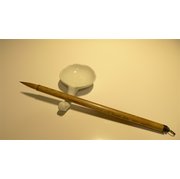
Large Bamboo Orchid
£6.95

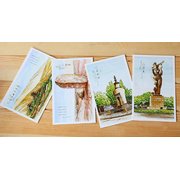
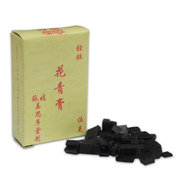

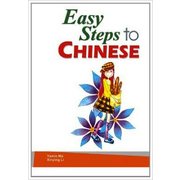
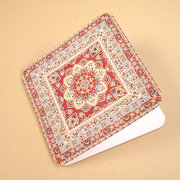
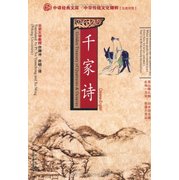

 Facebook
Facebook Twitter
Twitter Pinterest
Pinterest Google +
Google +